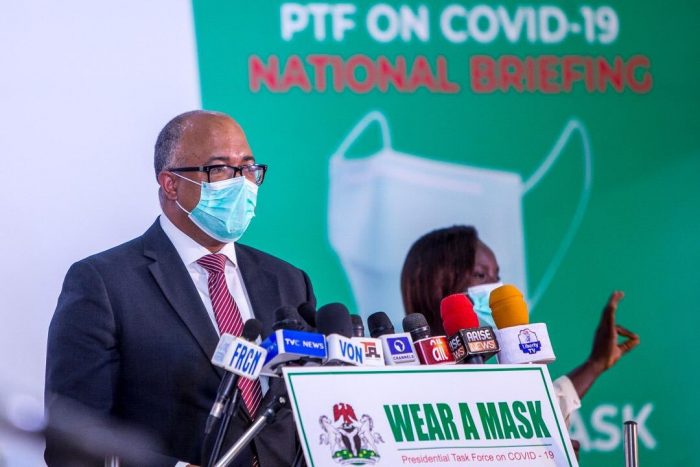Nigeria is now in a new phase of the COVID-19 pandemic, the community transmission, the NCDC warned on Sunday night.
In a post on its Twitter handle, the agency said “that people getting infected cannot identify the source of #COVID19 infection.
“We all need to do all we can to protect ourselves and loved ones even if you feel fine”, it added.
According to the latest analysis by NCDC, people with travel history now just account for 403 or two percent of cases.
Those who made contacts with people with travel history form 22 per cent or 4,375 cases, while a humongous 76 percent or 15,030 cases do not have any origin.
They were classified as ‘unknown exposure’.
This forms the basis of the NCDC warning to Nigerians that infected people these days cannot pinpoint source of infection.
A few days ago, Musa Aliyu, national co-ordinator of the Presidential COVID-19 Task Force also warned Nigerians.
He said they could contract the virus just anywhere.
In its update for 20 June, out of the 113,575 samples tested, 19,808 proved positive.
The virus appears gender-biased as men constitute 66 percent of the cases.(see chart)
Men account for 13,207 cases, while women have 6781 cases or 34%.
Also notable in the analysis is that people in the 31-40 age bracket form 24 percent of cases.
More worrisome is the backlog of active cases.
As at 21 June, Nigeria has only been able to discharge 33 percent or 6,879 of the 20,244 confirmed cases.
The death toll has also reached 518 as confirmed cases ballooned.
Lagos with 8,407 cases on 20 June, discharged 17 percent or 1,436 patients.
Clogging hospital beds are 6,848 cases.
The FCT, with the second highest caseload has done better.
It discharged 30 per cent or 475 of its 1,549 cases.
Kano has 60 percent patients discharged, 712 of the 1,184 cases recorded.
Rivers has 41 percent recovery and Oyo 32 percent.
Edo and Delta have poor records of recovery, like Lagos. While Edo has 20, Delta has 25 percent.
NAN
